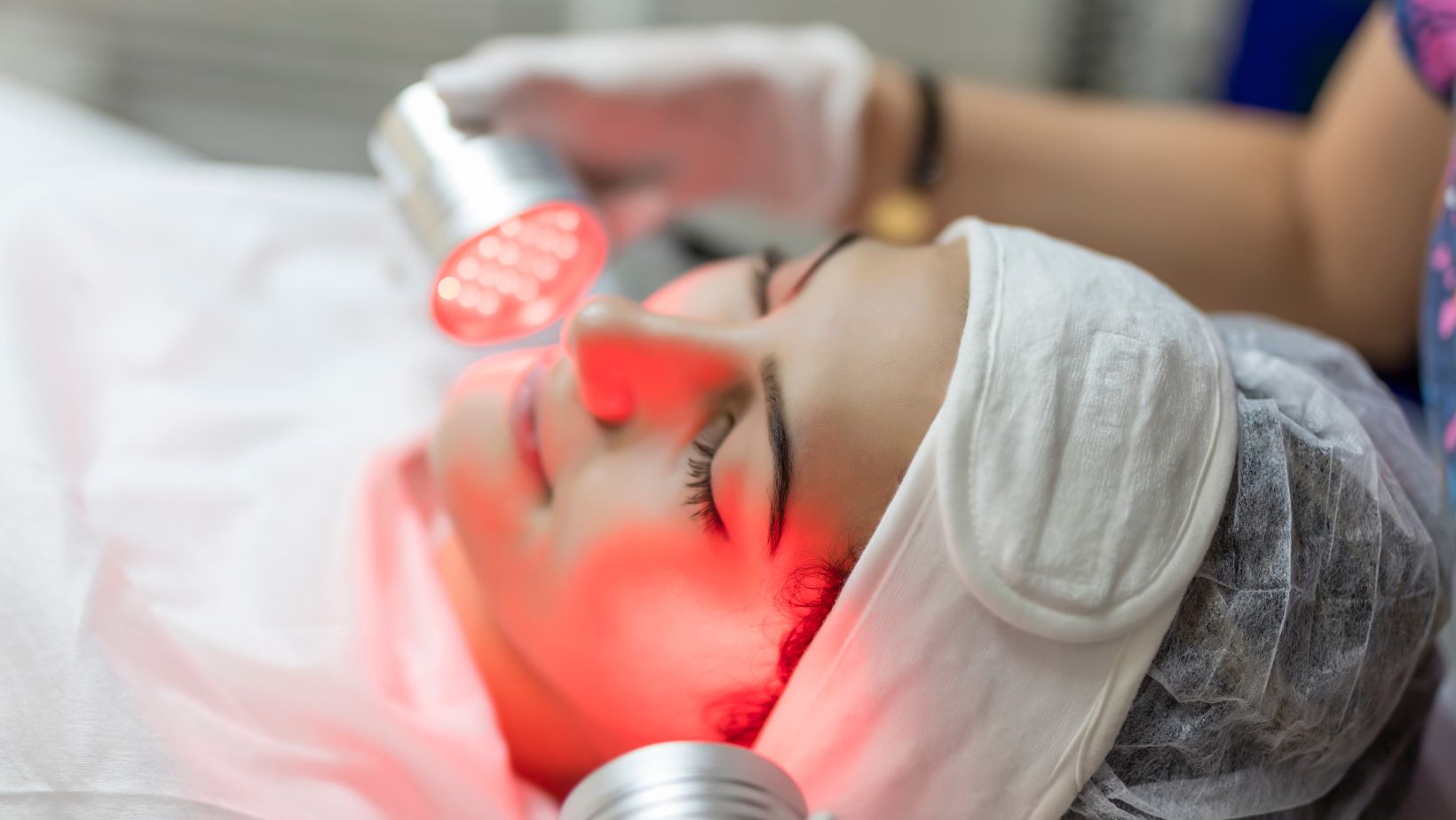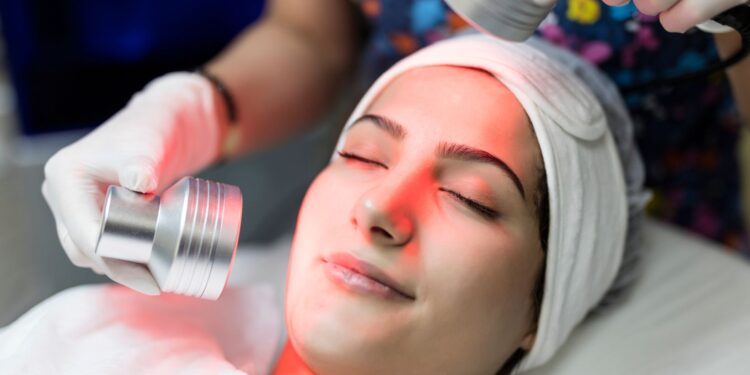Are you looking to learn more about the buzz around red light therapy? This groundbreaking wellness and beauty treatment has been gaining widespread popularity. In simple terms, red light therapy utilizes low levels of red light for potential health benefits.
This is your guide to what red light therapy is, its origins, how it works, and the science behind it.
What To Know About Red Light Therapy
Red and near-infrared light in the 630 to 670 nm and 810 to 880 nm ranges can reach the skin and support cellular repair by improving mitochondrial output. Results are gradual and depend on consistent sessions. Think of it as a supportive tool that complements good skincare and healthy habits. Dr. Shamsa Kanwal, M.D
Red light therapy, also known as photobiomodulation (PBM), is a non-invasive therapeutic method that utilizes low-level, non-thermal light with wavelengths ranging between 630 and 670 nm (visible red) and 810 to 880 nm (invisible near-infrared). Originating in the 1980s by NASA for plant growth experiments in space shuttle missions, this therapy soon found its way to medical applications.
PBM operates under the principle that red light, at specific wavelengths, can penetrate human skin and tissues, reaching depths of about 8-10 mm. Once absorbed, the light energy triggers biological processes at the cellular level.
It enhances mitochondrial function by stimulating the production of ATP (adenosine triphosphate, a universal energy molecule in the cell), leading to improved cell vitality and tissue recovery. This potential to optimize cellular function forms the basis of red light therapy.
What Are the Health Benefits of Using Red Light Therapy?
Red light therapy spearheads a revolution in various health sectors due to its numerous potential benefits. This innovative treatment method can serve as a path towards enhancing skin health, supporting mental well-being, and managing pain and inflammation.
Boosted Skin Health and Healing
Red light therapy has a profound impact on skin health. Known to encourage cell regeneration, the treatment helps mend sun damage, reduce scars, and even control acne.

The rejuvenating effect of this therapy can help slow the appearance of premature aging by reducing fine lines and wrinkles, resulting in firmer, more youthful-looking skin. Red light therapy also works to expedite wound healing, making it a supportive treatment in post-surgery or injury recovery.
Mental Health Support
Emerging evidence suggests that red light therapy plays a supportive role in mental health. For individuals experiencing seasonal affective disorder (SAD) and various forms of depression, exposure to red light has indicated symptomatic relief.
Red light therapy may contribute towards enhanced mood and overall mental well-being by stimulating the production of serotonin, often referred to as the “happy neurotransmitter.” This potential uplift in serotonin levels could lead to a more positive mental state and better emotional balance.
Pain and Inflammation Management
Chronic pain and inflammation are challenging health issues that many grapple with. Red light therapy emerges as a promising solution. Clinical studies have shown that this therapy helps alleviate discomfort associated with conditions such as arthritis, back pain, and muscle soreness resulting from intense physical activity.
Red light therapy has been noted for its anti-inflammatory properties, which are shown to effectively soothe inflammation. This potential bioactivity could provide a more natural alternative to pain management and, in some cases, reduce the dependence on pharmaceutical remedies.
Enhanced Physical Performance and Recovery
Red light therapy is gaining momentum in the world of fitness and athletics. By stimulating mitochondrial activity and increasing ATP production, this therapy enhances energy availability in the muscles, thereby potentially improving physical performance.
Furthermore, it accelerates muscle recovery post-workout by reducing soreness and inflammation. This element of enhanced recovery makes this therapy an attractive complement to training routines for athletes or anyone regularly engaging in physical activity.
Risks and Misconceptions about Red Light Therapy
A common misconception is that red light therapy is a fast fix. The truth is that the therapy requires regular, continued use for the benefits to bloom.
One mistaken belief is that any form of light exposure can duplicate the effects. This isn’t merely oversimplification but outright incorrect. The therapy crafts its benefits specifically through the red light wavelength, making a DIY approach with household lights ineffective and potentially hazardous.
Regarding risks, thanks to its non-invasive nature, red light therapy manages to keep risks relatively low. However, excessive use can lead to mild irritations, such as redness or a rash, although these are rare. As always, consult a healthcare professional before introducing new treatments into your routine.
Illuminating the Potential of Red Light Therapy
Red light therapy, with its many potential health benefits, is an effective option in today’s wellness landscape. This non-invasive treatment method offers applications stretching from skin rejuvenation to mental health support and pain management.
However, it’s crucial to approach it with realistic expectations and understand that its effectiveness can vary considerably across individuals. Always consult a healthcare professional before incorporating therapies like this into your wellness routine.
Overall, red light therapy offers many advantages. Given these potential benefits, it’s worth considering within the larger context of your ongoing efforts to achieve better health and improved quality of life.














Discussion about this post